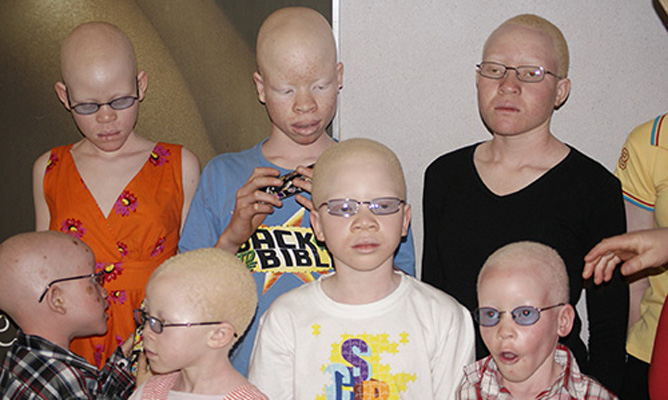
ZIMBABWE Human Rights Commission (ZHRC) commissioner Sheila Matindike has bemoaned the continued discrimination of albinos, elderly people and pensioners by members of society.
BY VENERANDA LANGA
Addressing members of the Parliamentary Thematic Committee on Human Rights last Thursday, Matindike said most companies were reluctant to employ albinos while some schools shunned children born with albinism.
“People living with albinism face a lot of problems and recently they came together at a function that I attended and they said there was a lot of discrimination against them,” Matindike said.
“They said some employers did not was to employ albinos, while some albino children were not being sent to school because of who they were, and even those who were in the school system said they faced discrimination – sometimes by teachers who did not give them the attention they needed, as well as other children,” she said. She said most of the elderly people in the country were living in extreme poverty.
“They are given meagre pensions – which in most cases are not paid on time, and we need to rectify the area and ensure pensions are reasonable so that we do not subject them to poverty. Most of the elderly people cannot even access medical health care and yet they used to make contributions while they were still working,” she said.
Another ZHRC commissioner Kwanele Jirira said women continued to face discrimination with rapes of minors and young girls increasing, as well as women being the worst hit by economic hardships in the country.
“It is women who normally till the land, but when it comes to distribution of inputs we find it is the men who get them. The informal sector used to be dominated by women, but now women are being pushed out of that sector because of de-industrialisation which has forced men to join the informal sector. We need to know that women are critical in poverty alleviation,” Jirira said.
- Chamisa under fire over US$120K donation
- Mavhunga puts DeMbare into Chibuku quarterfinals
- Pension funds bet on Cabora Bassa oilfields
- Councils defy govt fire tender directive
Keep Reading
She said people living with disabilities and young people’s rights were also violated in the sense that young people graduated from universities, but had challenges getting jobs.











